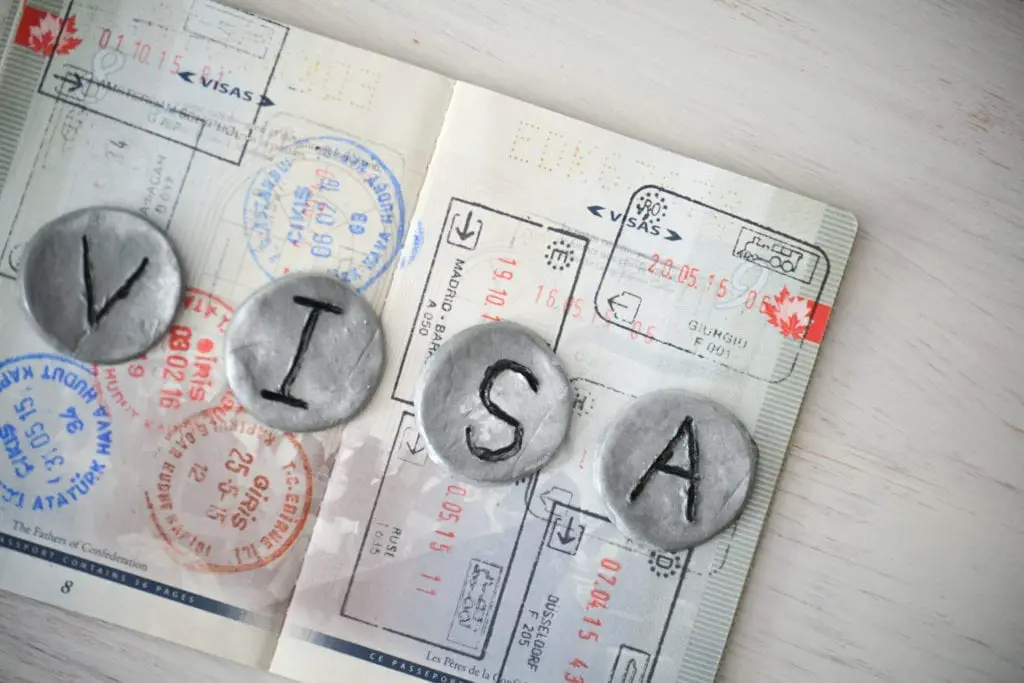If you’re not from one of the lucky few countries that don’t require a “short-term visa” for a 90-day stay in Germany, this post is your friend. Elisa Stella, Founder of Düsseldorf Expat Assistant and the expert who joined us for a 1-hour Expat Question Time on Life in Düsseldorf is back again to give you some tips on how to obtain your short-term visa for Germany.
If you already know you will be requiring a long-term visa, you can head to our blog post “How to Obtain a Long-Term Visa For Germany“.
TIP: If you already know you’d like to have someone else to the exhausting paperwork trail for you, then it’s definitely worth checking out an online visa service centre!

EU nationals do not require a visa to enter Germany, but what about others?
Generally speaking, all other foreigners require a visa for stays in Germany, however, the question “Do I need a visa?” is not as obvious as it seems (as many things in Germany)!
You do not need a visa if you stay up to 90 days within 180 days if you come from one of the countries of which the European Community has abolished the visa requirement. So if you are for instance Canadian, from Colombia, from Korea, or Switzerland, you do not need a visa; but you do need a visa if you come from South Africa, the Philippines, or India, and the list goes on…
Once you know you will need a short-term Visa for Germany (up to 90 days within 180 days), it’s time to start applying for it…
1. Be sure you meet the requirements.
This means that the purpose of your trip is clear and realistic, you’ll finance your trip and your stay with your own money (or a third person guarantees this), and you have travel health insurance for the entire Schengen area, which covers at least 30,000 euros. There are English-speaking insurance providers that gear their services to expats needing to fulfill their visa requirements, so this should be a breeze.
2. German Embassies and Consulates in your home country issue visas.
Not the foreign office in German town halls! Except (an exception again!) for citizens from Australia, Canada, USA, and a couple of other countries, who can enter Germany for short stays without a prior visa. Make sure you head to the German embassy or consulate in your home country before coming to Germany. There is a list of locations in all countries on the Auswaertiges Amt website (in English).
Alternatively, you can also see if you qualify for support on an online visa service platform – they will do the bulk of the application work for you, so you don’t have to deal with the embassy.
3. Refer to the German Embassy or consulate in which you have your ordinary residence or domicile.
Consult the website well in advance of your departure date, check the application procedure, and what documentation you have to submit. If you have any questions leading up to your departure date, always refer to the German embassy or consulate closest to you.
4. Visa application forms are available at Embassies and Consulates free of charge.
Or you can download them from their website. Fill them in properly, which means “accurately and fully”, as a German would do (haha). To download the application form, you will need to head to the same website you did to find the closest embassy near you, click on the respective embassy website, and download the application form from the “Schengen Visa” section.
Here is what it looks like for applicants from Afghanistan for example.
5. Submit these forms together with all necessary documents, and bring them in person to the related German authority of reference.
It sounds exhausting, but many embassies and consulates have adopted an electronic scheduling tool, which allows you to book a personal appointment without standing for long in a queue!
Note: Requirements may differ per country, but almost all applications require a letter of invitation to Germany from someone you are connected with and all applications require proof of valid travel health insurance.
I figured I’d keep it short and sweet so that you can understand the basics of what steps you might have to take in obtaining a short-term visa for Germany. However, if you would like more details about if you need to apply and if so, what you need to do, take a look at the Auswaertiges Amt website (the page is in English, don’t worry).
NEXT STEP! Once you have successfully obtained your short-term visa for Germany, it’s time to look into getting a bank account. The setup is extremely easy and there are a number of expat-friendly bank accounts that you can get (many for free too)!












